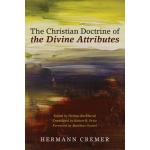Who Is a “Real Christian?”
Several times recently I’ve mentioned “real Christians” here. A few visitors and commenters have objected to the concept. How is it possible to discriminate between “real Christians” and, well, false Christians?
If we start at the other end, so to speak, and talk about “false Christians,” it’s easier to understand why it’s necessary to speak about real Christians. Who can doubt there have been and are false Christians?
I confess that this habit of distinguishing between true and false Christians is something I grew up with and it was often abused by the Pentecostals and conservative evangelicals that surrounded me in my family, church and wider religious community.
But just because a concept or category is abused doesn’t mean it isn’t valuable or necessary. Somewhere I heard that “the cure for abuse isn’t disuse but proper use” (referring to good or necessary ideas, terms, categories).
The distinction between real Christians and false Christians is rooted in the New Testament itself. 1 John 2:19 speaks of “antichrists” who went out from the church but never belonged to it in the first place. Obviously, the writer is speaking of people who pretended to be Christians, may have even thought they were Christians, were among the people of God, but were not true Christians.
Luther talked much about the “false brethren.” I may not agree that the people he so identified were truly false, but I agree with the category. I would just populate it differently (in some cases).
Kierkegaard staked much on the distinction between true and false Christians. He wrote that in a country (such as his) where everyone is a “Christian” by birth, true Christianity does not exist.
Who can seriously say there are no false brethren today? It may sound ungenerous to talk about true versus false Christians, but just to mention white supremacy churches is to make the distinction unavoidable.
Anyone who has lived in a culture where everyone thinks they are Christians simply because they were baptized at birth or walked the aisle at some time (to join a church) is to know the reality of false Christianity.
Another term for false Christianity is “nominal Christianity”—Christianity in name only. There’s truth in the old saying, however cheesy it may be, that just because you’re in a garage doesn’t make you a car. Just being a member of a Christian church doesn’t make you a true Christian. It makes you at best a nominal Christian.
So what is true Christianity? That’s harder to define than false Christianity (when extremes are mentioned as examples).
First, let me once again emphasize that “saved” and “Christian” are not necessarily the same thing. I would say that all true Christians are saved but not all false Christians are necessarily unsaved. Only God knows who is saved with certainty. I am reluctant to make such judgments; that’s God’s business, not any human’s.
The term “Christian” originally meant a Christ follower. It was synonymous with being a “person of the Way”—the Way of Jesus Christ. A true Christian, then, is a disciple of Jesus Christ. The World Council of Churches, the broadest and most inclusive ecumenical body in the world, requires member churches (denominations) to affirm that “Jesus Christ is God and Savior.” Churches that will not affirm that in an exclusive sense (i.e., he is the only God and Savior) cannot join. When the WCC passed that test for membership, theologian and New Testament scholar Rudolf Bultmann scoffed at it and refused to join. Unitarian churches are not members of the WCC, nor are churches that elevate some modern person to ultimate status.
I agree with the WCC on this—at minimum, confession of Jesus Christ as God and Savior is necessary for authentic, true Christianity (insofar as a person is capable of such understanding and confession).
But, as an evangelical, I would go further and say that true Christianity requires more than mere confession; it requires personal commitment (on the parts of those capable of it) to the way of Jesus as defined by the New Testament and at least a heartfelt desire and attempt to live in submission to his lordship.
Again, a distinction must be made between “saved” and “Christian.” Surely there are people in the world who are true Christians who are not yet or no longer (or were never) capable of understanding things like “Jesus Christ is God and Savior” and have never had opportunity to confess that. I do not exclude them from being Christian.
“True Christianity” is a centered set and not a bounded set. Neither I nor any other mere human has the authority to decide who is and who is not a true Christian—other than as a matter of personal opinion.
There are times, however, when churches (denominations) find it necessary to decide who is not a true Christian. Some years ago the World Alliance of Reformed Churches (now the World Communion of Reformed Churches) declared apartheid apostasy. That is to say that persons who supported it are apostate—at best false Christians, at worst, possibly unsaved.
I cannot survey the world or my own country and culture and avoid the distinction between true and false Christians.
The clincher should be Matthew 7:21-23. Many will say “Lord, Lord” to whom Jesus will say “I never knew you.”













